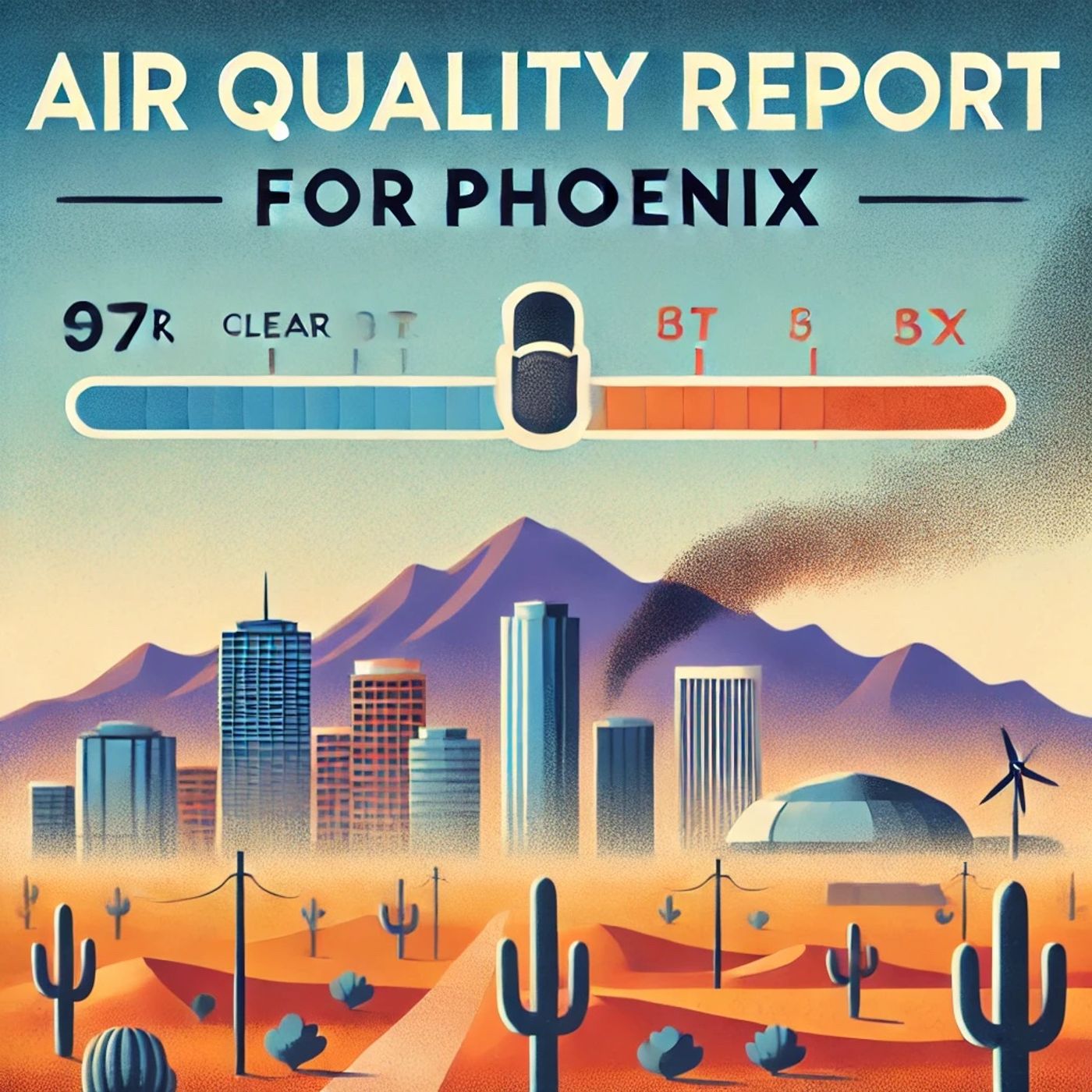Listen "Phoenix's Air Quality Moderate, Challenges Persist Amid Ozone and Particulate Matter Concerns"
Episode Synopsis
Phoenix, Arizona, is known for its arid desert climate and stunning landscapes, but it also faces significant challenges related to air quality. Today, Phoenix's air quality is registered as moderate with an Air Quality Index (AQI) ranging between 51 and 100. This indicates that air quality is acceptable; however, there may be some risks for people who are unusually sensitive to air pollution.One of the primary pollutants in Phoenix's air today is ground-level ozone. This type of ozone should not be confused with the protective ozone layer high in the Earth’s atmosphere. Ground-level ozone forms when pollutants emitted by cars, industrial facilities, and other sources react with sunlight. It is particularly problematic on hot days, which are common in Phoenix, making this an ongoing concern for residents.Particulate matter, especially PM2.5 and PM10, is another notable air pollutant in Phoenix today. These tiny particles can penetrate the respiratory system and even enter the bloodstream, contributing to health problems such as asthma, bronchitis, and other respiratory issues. The source of these particles includes construction sites, unpaved roads, fields, smokestacks, and fires.Wildfire smoke is a seasonal but increasingly frequent contributor to poor air quality in Phoenix. With recent trends showing hotter and drier conditions in the broader Southwest region, the risk and incidence of wildfires have surged. Today, although there are no major wildfires immediately threatening the city, smoke from distant fires can still waft into the valley, deteriorating air quality.Local weather conditions play a crucial role in air quality. Today, Phoenix is experiencing relatively stable atmospheric conditions with limited wind, which can lead to the accumulation of pollutants near the ground. When air is stagnant, pollutants don't disperse as quickly, resulting in higher concentrations of harmful substances.Health advisories suggest that sensitive groups such as children, the elderly, and individuals with pre-existing respiratory or cardiovascular conditions limit prolonged outdoor exertion. It's advisable to monitor real-time air quality updates through reliable sources like the Environmental Protection Agency’s AirNow website or local air quality monitoring services.Efforts to improve air quality in Phoenix are ongoing. The city has implemented various measures such as promoting the use of public transportation, improving emissions standards for vehicles, and encouraging the use of electric and hybrid vehicles. Residents are also urged to contribute by reducing activities that can lead to air pollution, such as limiting the use of fireplaces and gas-powered lawn equipment.In conclusion, while Phoenix’s air quality today is moderate and generally acceptable for most people, it’s important for vulnerable individuals to take precautions. With continuous efforts and community awareness, Phoenix hopes to steadily improve its air quality and ensure a healthier environment for all its residents.This content was created in partnership and with the help of Artificial Intelligence AI
More episodes of the podcast Phoenix Air Quality Report - Daily
Phoenix Enjoys Excellent Air Quality Today
23/08/2025
 ZARZA We are Zarza, the prestigious firm behind major projects in information technology.
ZARZA We are Zarza, the prestigious firm behind major projects in information technology.
